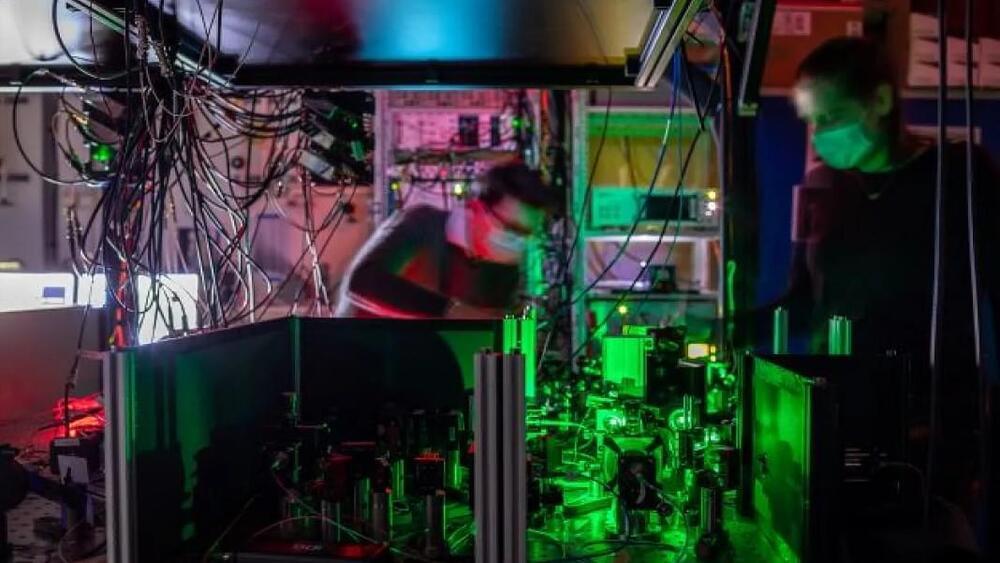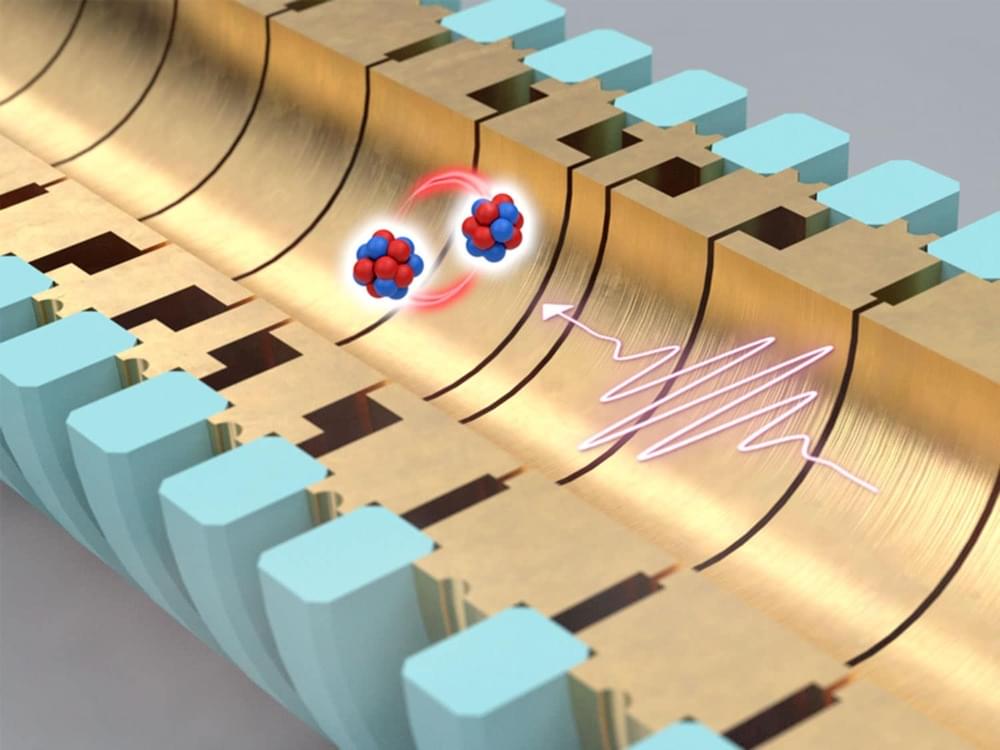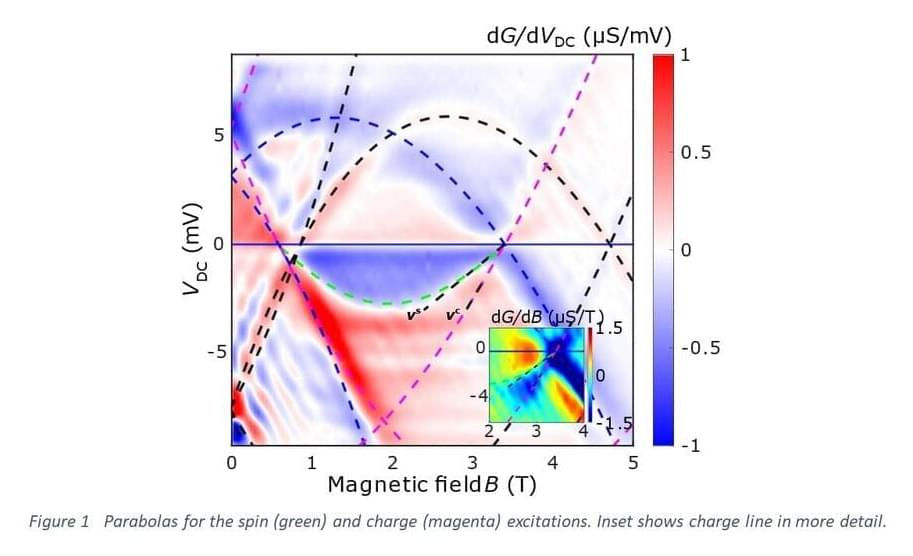View insights.
Physicists have long sought to marry general relativity and quantum mechanics – now some reckon experiments that probe the way each theory treats time could finally make it happen.


Manufacturing with atoms has been the siren’s call for many researchers who believed it was the key that could unlock enormous new potential in how we build things. We could develop products that are perfectly precise, contain zero waste and that are 1000x more energy efficient. The problem has always been the same: How? Until now. Wolkow has taken a leading role in laying a new, stable foundation for the world to begin building on the tiniest of scales. Robert Wolkow is a Professor in the Department of Physics, iCORE Chair of Nanoscale Information and Communications Technology at the University of Alberta and Fellow of the Royal Society of Canada. He is also the Principal Research Officer and Nanoelectronics Program Coordinator at the NRC Nanotechnology Research Centre (NRC-NANO), AITF Industrial Chair in Atom Scale Fabrication and CTO of Quantum Silicon Inc.
An award-winning innovator, Wolkow has had a leading role in discovering, altering and deploying atom scale properties of silicon. His years of fundamental advances have laid a broad foundation for practical applications. This talk was given at a TEDx event using the TED conference format but independently organized by a local community.
Algorithms, Shor’s Quantum Factoring Algorithm for breaking RSA Security, and the Future of Quantum Computing.
▬ In this video ▬▬▬▬▬▬▬▬▬▬▬▬▬▬▬▬▬
I talk about my PhD research at MIT in Quantum Artificial Intelligence. I also explain the basic concepts of quantum computers, and why they are superior to conventional computers for specific tasks. Prof. Peter Shor, the inventor of Shor’s algorithm and one of the founding fathers of Quantum Computing, kindly agreed to participate in this video.
▬ Follow me ▬▬▬▬▬▬▬▬▬▬▬▬▬▬▬▬▬▬
LinkedIn: https://www.linkedin.com/in/samuel-bosch/
Instagram: https://www.instagram.com/samuel.bosch/
▬ Credits ▬▬▬▬▬▬▬▬▬▬▬▬▬▬▬▬▬▬▬▬
Some of the animations were taken from “Quanta Magazine” (Quantum Computers, Explained With Quantum Physics): https://www.youtube.com/channel/UCTpmmkp1E4nmZqWPS-dl5bg.
Other animations are from “Josh’s Channel” (How Quantum Computers Work): https://www.youtube.com/channel/UCnNEI3UdreSoQ6XUNcKoUeg.
The quantum circuit animations are from “Kurzgesagt – In a Nutshell” (Quantum Computers Explained – Limits of Human Technology): https://www.youtube.com/channel/UCsXVk37bltHxD1rDPwtNM8Q


Quantum sensors can now detect signals of arbitrary frequencies thanks to a quantum version of frequency mixing—a widely used technique in electronics.
Monitoring the fissile material aboard nuclear-powered submarines is notoriously difficult. Researchers may now have a way to safeguard this weapons-grade substance.

Actually transporting quantum states over significant distances is tricky, though. Researchers have had some success transmitting messages tied up in the quantum states of photons over several hundred miles of optical cables, and also using satellite quantum communication to establish links over even greater distances. But the inevitable signal losses over either mode of communication mean that scaling up to the distances required for a true internet will be tricky.
One workaround is to exploit another quantum phenomenon called teleportation. This works much like the sci-fi concept used in shows like Star Trek, allowing information to be instantaneously transmitted from one place to another, theoretically over unlimited distances. And now, researchers from the Netherlands have provided the first practical demonstration of how this could work.
The team set up three quantum “nodes” called Alice, Bob, and Charlie, which are able to store quantum information in qubits—the quantum equivalent of bits in a computer made from nitrogen vacancy centers. These are tiny defects in diamonds that can be used to trap electrons and alter their quantum state. They then connected Alice to Bob and Bob to Charlie using optical fibers.


Electrons are some of the most basic building components of matter that we are familiar with. They have several distinguishing characteristics, including a negative charge and the existence of an exact intrinsic angular momentum, often known as spin. Each electron, as a charged particle with spin, has a magnetic moment that aligns in a magnetic field as a compass needle does.
Quantum electrodynamics can forecast the strength of this magnetic moment, which is given by the so-called g-factor, with incredible accuracy. This computation agrees to within 12 digits with the empirically determined g-factor, making it one of the most precise theory-experiment matches in physics to date. The magnetic moment of the electron, on the other hand, changes when it is no longer a “free” particle, that is, when it is linked to an atomic nucleus, for example. QED, which defines the interaction between electrons and nucleus in photon exchange, can be used to determine minor changes in the g-factor. This notion can be sensitively tested thanks to high-precision measurements.
In a new study, scientists at the Max Planck Institute for Nuclear Physics (MPIK) in Heidelberg successfully investigated QED predictions with unprecedented resolution. They used a newly developed technique to measure a very small difference in the magnetic properties of two isotopes of highly charged neon in an ion trap with previously inaccessible accuracy.

Imagine a road with two lanes in each direction. One lane is for slow cars, and the other is for fast ones. For electrons moving along a quantum wire, researchers in Cambridge and Frankfurt have discovered that there are also two “lanes,” but electrons can take both at the same time!
Current in a wire is carried by the flow of electrons. When the wire is very narrow (one-dimensional, 1D) then electrons cannot overtake each other, as they strongly repel each other. Current, or energy, is carried instead by waves of compression as one particle pushes on the next.
It has long been known that there are two types of excitation for electrons, as in addition to their charge they have a property called spin. Spin and charge excitations travel at fixed, but different speeds, as predicted by the Tomonaga-Luttinger model many decades ago. However, theorists are unable to calculate what precisely happens beyond only small perturbations, as the interactions are too complex. The Cambridge team has measured these speeds as their energies are varied, and find that a very simple picture emerges (now published in the journal Science Advances). Each type of excitation can have low or high kinetic energy, like cars on a road, with the well-known formula E=1/2 mv2, which is a parabola. But for spin and charge the masses m are different, and, since charges repel and so cannot occupy the same state as another charge, there is twice as wide a range of momentum for charge as for spin.